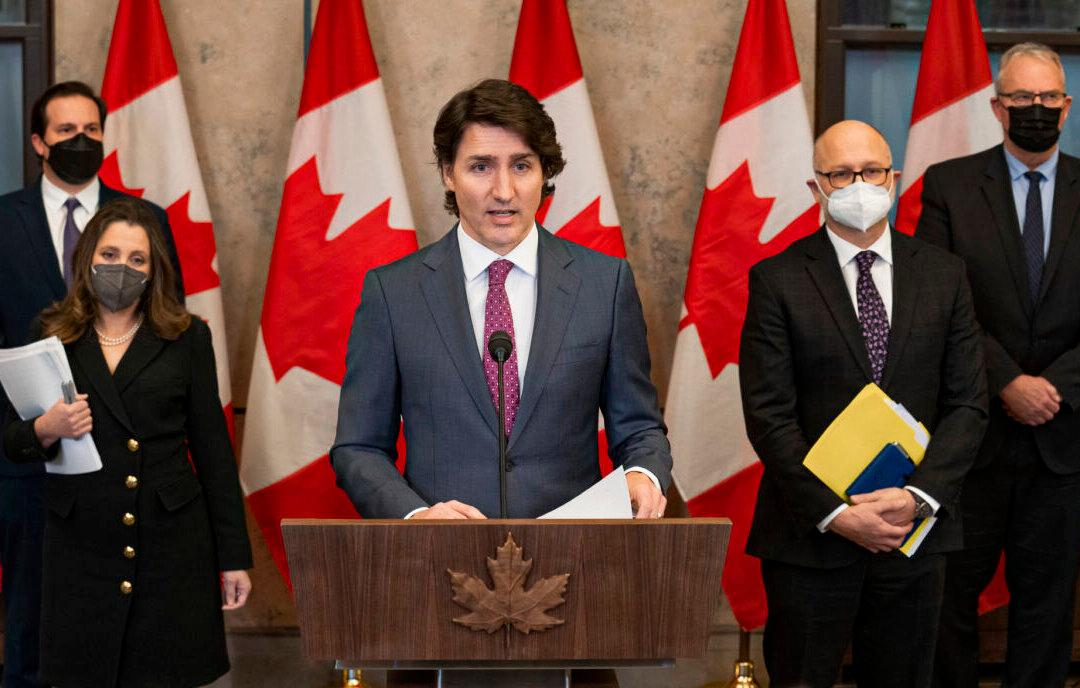The Canadian government’s move to use broad new financial powers to quash the trucker protests is being called an extreme and unnecessary overreach by financial crime experts, while it remains unclear how banks will be directed to choke off funding.
Deputy Prime Minister Chrystia Freeland said on Feb. 14 that crowdfunding platforms and the payment services providers they use will now fall under “anti-money laundering and terrorist financing rules,” with the changes covering all forms of transactions, including those in cryptocurrencies. In addition, financial institutions are asked to freeze the accounts, both personal and corporate, of clients whom they suspect are involved with the Freedom Convoy’s “illegal blockades.”





